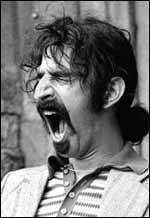
Je me suis dit qu’un jour je ferai des dessins satiriques sur l’actualité. Alors, je me suis abonné à plusieurs flux RSS comme Le Monde, Reuters, Associated Press, etc.
J’ai découvert que plus je lis l’actualité dans le but d’en faire quelque chose de drôle, plus j’ai de l’admiration pour ceux qui réussissent à le faire. Il me suffit de lire quelques titres des infos pour que tout envie de rire ou de faire rire disparaisse subitement et cède la place à l'envie de tout foutre en l'aire!
Comme disait Frank Zappa « Ca devient plus difficile quand on en sait plus. Parce que plus on en découvre, tout paraît de plus en plus laid. ». Coluche était un saint !
I once thought I would draw satirical political cartoons. So I subscribed to a number of RSS feeds like Le Monde, Reuters, Associated Press, etc.
I discovered that the more I read the news with the purpose of doing something funny, the more I admire those who succeed at doing so! I need only read a few headlines before all desire to laugh or to make others laugh suddenly disappears giving place to an great urge to destroy mankind!
As Frank Zappa once said "It gets harder the more you know. Because the more you find out, the uglier everything seems." Coluche was a saint!
 Je me suis acheté un appareil photo aujourd'hui, alors je me suis promené pour prendre mes premiers clichés. En passant dans la rue Estelle ces jeunes m'ont demandé de leur prendre en photo. Je trouve la palette des couleurs parfait, je n'aurais pas pu faire mieux si j'avais fais exprès.
Je me suis acheté un appareil photo aujourd'hui, alors je me suis promené pour prendre mes premiers clichés. En passant dans la rue Estelle ces jeunes m'ont demandé de leur prendre en photo. Je trouve la palette des couleurs parfait, je n'aurais pas pu faire mieux si j'avais fais exprès.






